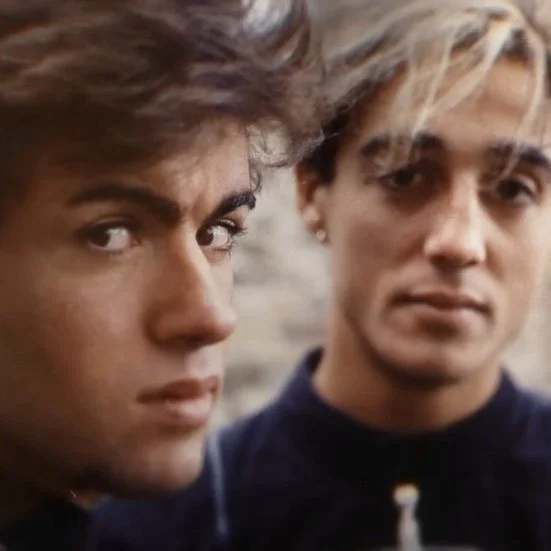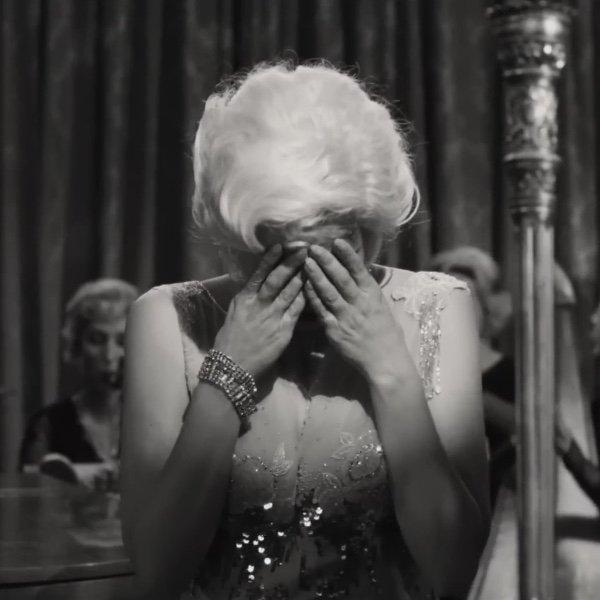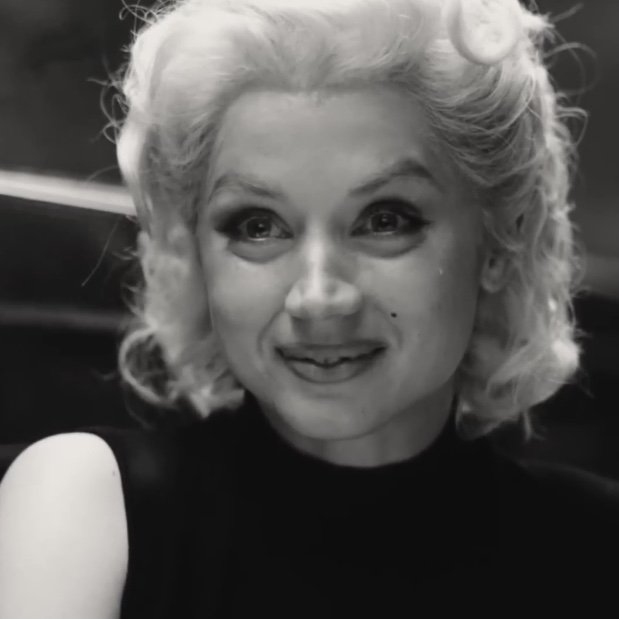Gotta Have Fate
The Netflix documentary, Wham! is as much about destiny, as it is about one of the biggest pop acts of the 1980s and its global impact over a mere five years. The story of how Georgios “George Michael” Panayiotou and Andrew Ridgeley became the legendary pop group is told mostly through archival footage and audio soundbites.
Meeting at school as pre-teens, Andrew and Yog, Andrew’s nickname for Georgios, became friends with a mutual interest in music. By their late-teens, the pair began writing catchy tunes laced with social commentary, plus ones that embraced the frivolity of youth culture (“Club Tropicana”), as well as others that appeared on their 1983 debut album, Fantastic. “Wham Rap! (Enjoy What You Do),” “Bad Boys” and “Young Guns (Go For It),” positioned Yog, professionally known as George Michael, as the rebellious protagonist, hell- (or heck-) bent on avoiding the 9 to 5 and “death by matrimony,” and set on saving Andrew Ridgeley’s character from a “straight-laced” life (one without George). Besides the (not-so) underlying homoerotic subtext, gay subculture iconography played heavily: leather jackets; tight jeans; aviator glasses—a look that solo George would don again for the Faith era. The musical and visual appeal of Wham! was far-reaching.
Co-crafting the sax-drenched power ballad, “Careless Whisper,” continuing into the Make It Big album (“Wake Me Up Before You Go-Go”; “Everything She Wants”; “Freedom”) and their final, Music from the Edge of Heaven (“Last Christmas”; “I’m Your Man”; “Where Did Your Heart Go?”), both traveled down the same creative pop-music path, only for them to hit the proverbial fork in the road, with personal goals and professional roles shifting as they achieved international success. Watching the documentary through the lens of loss, and letting go in life, adds further emotional resonance to what is essentially a story of unconditional love between friends, with one who must selflessly accept what is, so the other can become who he was destined to be.
Go-go watch it if you haven’t.
A Big Fan of Fran
Direct and decisive, Fran Lebowitz (author of Metropolitan Life; Social Studies; writer for Interview and Mademoiselle magazines) has offered up her observations and opinions about life, and life in New York, since the 1970s. In Martin Scorsese’s 2021 seven-part Netflix docs-series, “Pretend It’s a City,” Lebowitz goes from putting her perspective down on pen and paper (literally, as she doesn’t own a computer, a cell phone, or an electronic tablet) to conversing across a table with Scorsese about Times Square, public transportation, her lifelong passion, and strict reverence, for books, and much more. And in doing so, Lebowitz delivers something epiphanic in nearly every 30-minute episode (her thoughts on the basketball legend, Michael Jordan springs to mind, for starters).
When the end credits appear, there’s a desire for more Fran; likely Scorsese felt the same way, squeezing in one more sharp sentiment from the woman of the half-hour during the credits. Wishing for a sequel, Mr. Scorsese, “Pretend It’s Still a City.”
Five for Pride
With Pride Month in June, there’s no better time to revisit, or maybe discover, some of the best arts and entertainment under the rainbow. From dance-club bangers and groundbreaking series to heartwarming rom-coms and poignant documentaries, and more, there’s no shortage of material that speaks, and sings, to the LGBTQ+ experience. Here are five for Pride:
Ultra Anthem
It’s safe to say that since 1997, Ultra Naté’s now-classic house track, “Free” has been a Pride-parade staple. The heartfelt message is right there in the chorus (“Cause you’re free/to do what you want to do/You’ve got to live your life/Do what you want to do”). And to drive home that empowering message, the tail end of the bridge (“Don’t be scared, your dream’s right there/You want it [you want it], reach for it!”) provides that soulful burst of encouragement to anyone about to embark on a new chapter. There are a number of variations of “Free,” but the “Mood II Swing Radio Mix” is essential for any Pride playlist.
(Chosen) Family Ties
And speaking of embarking on new chapters, in more ways than one, the 1993 limited TV series, “Armistead Maupin’s Tales of City,” set in San Francisco in 1976, follows sheltered Ohio-native Mary Ann Singleton (Laura Linney’s breakout role) as she decides to go from visiting vacationer to full-time resident. She moves into a utopian-inspired apartment complex on 28 Barbary Lane, run by an eccentric landlady, Anna “Dear, I have no objection to anything” Madrigal (Olympia Dukakis).
Mary Ann befriends her fellow tenants, whose lives are also explored, including Michael “Mouse” Tolliver, a gay hopeless romantic. She also begins a new job, dabbles in dating a couple of questionable men (Mary Ann’s namesake says it all: single-ton), and broadens her horizons in the city by the bay. Mary Ann undergoes a kind of “coming-out process” of her own, moving from straight-laced Ohioan to straight ally San Franciscan.
As this six-episode series progresses, the characters’ lives become intertwined, with the series taking on a mysterious, even at times a mystical, tone, with hints of Hitchcock’s Vertigo referenced throughout. Most importantly, the series serves as a love letter to the free-spirited (gay) oasis known as 1970’s San Francisco. Maupin penned several Tales of the City novels, with three additional limited TV series airing over the decades. The original, in particular, remains a clever, comforting celebration of “chosen family” at its finest.
Trick is Full of Treats
The 1999 rom-com, Trick is a smart story that turns what was supposed to be a casual hookup between a shy composer, Gabriel (Christian Campbell, left) and a go-go boy, Mark (J.P. Pitoc, right) into something heartwarming and hilarious. (The scene featuring a monologue by Miss Coco Peru [Clinton Leupp] is one of the many memorable moments.) The film and its soundtrack are perfect companions for Pride: Gabriel pours his heart into writing the catchy “Enter You,” as performed by his friend, Katherine (the comedic revelation that is Tori Spelling); ‘70s soft-pop classics (Gary Wright’s “Dream Weaver”; Helen Reddy’s “I Am Woman”) get reimagined as ‘90s dance mixes
(Erin Hamilton—Carol Burnett’s daughter—sings the former; Jessica Williams the latter); the instrumental “Trick of Fate/Enter You” plays over a pivotal moment between Gabriel and Mark, sure to induce a googly-eyed sigh. Trick is a testament to kismet, and all the promise and possibility that can unfold when you take your time in life and love.
Pop-Art Portrait
Soup cans in the ‘60s; Studio 54 in the ‘70s, likely two of the many things that come to mind when people think of the legendary artist, Andy Warhol. But in the Netflix documentary series, “The Andy Warhol Diaries,” based on Warhol’s 1989 non-fiction work of the same name, as edited by Pat Hackett, one learns more about the artist’s life behind the canvas and the camera shutter, particularly his personal relationships with interior designer, Jed Johnson, and Hollywood studio executive, Jon Gould, as well as Warhol’s complicated collaboration with fellow influential artist, Jean-Michel Basquiat.
What makes the series so profound is hearing Warhol narrate some of his diary entries, achieved by the use of an AI voiceover program. In his deadpan delivery, Warhol not only shares the mundane moments, but goes deeper to express various insecurities, and later his worries about the AIDS crises in the early ‘80s. It’s those vulnerable revelations that allow the series to become an insightful, poignant portrait.
Ford. Firth. Fab.
Fashion designer, Tom Ford made his directorial debut with 2009’s “A Single Man,” which is based on the 1964 novel by Christopher Isherwood. Colin Firth plays a 1960s professor named George Falconer, who is devastated by his partner, Jim’s sudden death (the “phone-call scene” was reason enough for Firth’s Academy Award nomination). Heartbroken, George tries to “just get through the goddamn day,” and it’s through flashbacks that the viewer sees how George and Jim met, as well as a few of the ordinary, yet not any less significant, moments from their life together.
In one such flashback, we see both in domestic bliss, lounging together on opposite sides of a couch, reading, and listening to a record, their two dogs sleeping next to them. A proponent of living, and finding the beauty, in the moment (the overarching message of the film), Jim unexpectedly expresses how content and complete his life is with George: “What could be better than being tucked up here with you.” Practically every moment in the film is beautifully shot. A Single Man is chic; poetic; the epitome of style meets substance.
In summary, whether you’re a member or an ally of the community, hopefully you’ll be able to incorporate one or some or perhaps all five picks to celebrate during the month, and beyond. Happy Pride!
Platinum Portrayal: Ana de Armas’ Golden Performance in Blonde
Disclaimer: Please note that this article about the film, Blonde, features content related to mental and emotional trauma, and other similar themes, that may be triggering for some. Reader discretion is advised.
While many reviews of Andrew Dominik’s Blonde, the 2022 film based on Joyce Carol Oates’ historical fiction novel of the same name, were rather scathing, it’s Ana de Armas’ portrayals of Norma Jeane Mortenson and Marilyn Monroe that serve as the main reason to muster up the courage to try and commit to watching the often disturbing and disjointed three-hour film.
Oddly enough, through no fault of her own, it’s de Armas’ performance that’s representative of how disjointed the film really is: simply put, she’s far better than the material that surrounds her. Here are at least five scenes from Blonde where de Armas goes from good to great, displaying a wholehearted commitment to portraying a fictional incarnation of a famous figure, as well as the daunting, almost insurmountable, challenge of playing the most famous female icon in Hollywood history.
5. Calling the Shots: After talking to her agent by phone about the glaring salary inequity between her and a much-higher-paid Jane Russell for 1953’s Gentlemen Prefer Blondes, Norma Jeane calmly questions: “And I’m playing the blonde, in Gentlemen Prefer Blondes? That’s an insult.” She remains polite, even announcing: “I’m gonna hang up now,” but a second later her agent calls her Marilyn, to which Norma Jeane angrily replies: “F*** Marilyn, she’s not here!” and slams down the receiver. de Armas gives Norma Jeane a look of stunned disbelief at what has transpired, but soon proudly smiles at her newfound confidence.
4. Pink Diamonds: de Armas is Monroe’s Lorelei Lee doppelgänger in Blonde’s recreation of the classic “Diamonds are a Girl’s Best Friend” musical number from Gentlemen Prefer Blondes. With only two days to learn the choreography, de Armas captured Monroe’s hand gestures, shoulder shrugs and slinky movements on the narrow staircase. de Armas did 21 takes, with Dominik using the 21st in the final film.
3. Audition Ambition: In the scene where a nervous Norma Jeane auditions for the role of Nell for 1952’s Don’t Bother to Knock, it’s her opportunity to show the (uninterested) male powers that be how connected she is to the character, to the material and to what it represents. Norma Jeane delivers a solid audition (complete with de Armas dropping a single tear down her left cheek), but still asks to do the reading again. de Armas conveys Norma Jeane’s longing for connection, to be heard, not just seen.
2. A Method to the Sadness: At an acting workshop, an in-depth, Method-style exercise eventually sends Norma Jeane down to the floor in hysterics. As a disheveled Norma Jeane tries to regain her composure, as if she’s been jolted awake from a nightmare, the teacher asks: “What were you thinking of?” To which she replies: “I wasn’t thinking.” She quickly tries to gather her thoughts: “Um, maybe… I was remembering?” This is one of de Armas’ strongest scenes, for its display of raw emotion offset soon thereafter by a subtle, shy smile and a loud sniffle during Norma Jeane’s responses, showing just how committed Norma Jeane was to exploring her acting craft, even after an intense reaction.
1. Mother and Child Reunion: Early in the film, a seven-year-old Norma Jeane is living in Los Angeles with her mentally and emotionally unstable mother, Gladys. After surviving in a volatile, violent environment, Norma Jeane is placed in an orphanage, while her mother is eventually institutionalized. One of de Armas’ most gut-wrenching scenes occurs when Norma Jeane sees her mother for the first time in well over 10 years. de Armas’ reaction is visceral, capturing the sadness of separation, followed by her scanning her mother’s face in confusion. Despite their deeply dysfunctional history, it’s simply a child wanting her mother.
In an interview with the SAG-AFTRA Foundation, de Armas’ theorized as to the nature of this complicated relationship: “She really wants to fix Mother. The absent father figure is a problem, but I feel like Mother is the real problem, and what she feels like she has to fix… She thought, if I can find my dad and he comes back, then my mom is gonna be okay, but because I can’t find him, if I’m very, very famous, he can find me. But really it was the mother, you can see that she is trying to fix that, to build that relationship, and it’s obviously… no reaction there, there’s nothing, there’s no feedback, they don’t recognize each other.”
Honorable Mentions: de Armas has other remarkable moments in the film. For instance: The recreation of “I Wanna Be Loved By You” from 1959’s Some Like It Hot. Norma Jeane is on set in Monroe mode, playfully and seductively lip-syncing to the track, but quickly de Armas’ face switches to reveal a devastatingly deflated Norma Jeane, who stops mid-scene, and puts her head in her hands, only to then erupt ferociously in anger over the alleged demeaning on-set gossip about her. In seconds, de Armas’ range runs the spectrum from physical embodiment to mentally distracted to emotionally enraged.
Also, Norma Jeane’s meeting with “The Playwright,” is a rare occasion that we see her calm and self-assured. She’s clearly smitten with the intellectual across the table, and she beams at the professional and personal possibilities. Their flirtatious exchange of the greeting, “Hey, you” is one of the film’s sweet, all-too-brief moments.
de Armas received several acting-award nominations in early 2023, including an Academy Award nomination for Best Performance by an Actress in a Leading Role. And while she didn’t win any golden statues, her performance is the gleam amid all the gloom.

















